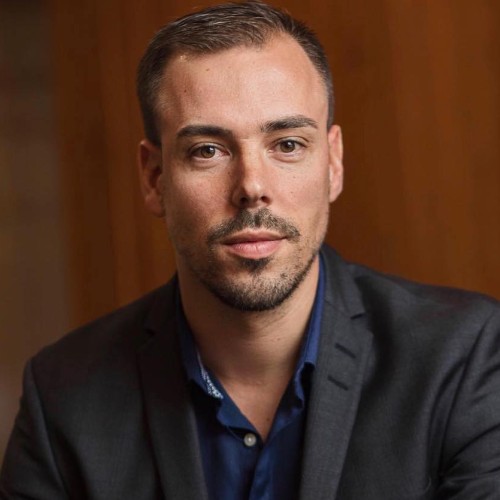China’s Tencent Leads $48m Series B Round In South African Payments Startup Ozow
Ozow, a South African payments gateway that allows people to make payments using their basic bank accounts, has received $42 million in a Series B round to expand its alternative payment options for its millions of merchants and customers.
Tencent, the Chinese internet powerhouse, led the deal, with Endeavor Catalyst and Endeavor Harvest Fund also investing. Reid Hoffman, the chariman of LinkedIn, was also involved in the round as the chair of Endeavor Catalyst’s investment committee.

“When you looked at e-commerce, point of sale, e-billing or P2P payment seven years ago, it was always a fragmented market. For example, if I want a point of sale device, I need to go to a company like Yoco. If I want to accept payments via card on my e-commerce site, I need to go to a PayU,” CEO Thomas Pays said in a statement.
“What we wanted to address was a central platform that could basically provide solutions to e-commerce, point of sale, e-billing and peer to peer payment.”
Ozow also intends to use the capital to grow its team from 100 to 250 people, including staffing its new European headquarters. In the following six months, a portion of the cash will also be devoted toward mergers and acquisitions as well as pan-African expansion to four countries: Namibia, Ghana, Nigeria, and Kenya.
Read also: Meta Launches Business Coach Tool on WhatsApp to Help SMBs in Africa Grow
Why The Investors Invested
Ozow’s success in attracting the latest investment lies mostly in the traction it has generated since its inception. Ozow’s business has grown 100 percent year over year since the company raised $2.5 million in its Series A round in 2019. It handles over $100 million in monthly transaction volume from thousands of retailers.
“We are also seeing a growth in new users, which is in excess of 140,000 per month. That’s quite an incredible growth and adoption,” Pays said.
“And this is certainly due to the consumer and merchant education that we had to go through over the past seven years as it was quite an innovative solution that no one was really familiar with before.”
Ozow raised $1.2 million in angel and seed rounds between 2016 and 2017, bringing their total raise to $3.7 million to date. This Series B financing, however, has upped that figure to $51.7 million.
Pays is especially pleased with the company’s new investors, who helped make this possible. According to Pays, Tencent committed over half of the total funds, or $20 million, as the principal investor.
Read also: Binary Innovative Technology Solutions on a Drive to Support its Growth
“It’s an honour to bring on board Tencent, Endeavor Catalyst and Endeavor Harvest Fund. This is a validation of our role in transforming the banking industry through the development of innovative, convenient and more inclusive payment solutions for everyone,” Pays said in a statement.
A Look At What The Startup Does
Thomas Pays founded Ozow in 2014 to promote financial inclusion through open banking. When customers perform online transactions, the corporation gives them access to their internet banking platform.
Before Ozow, manual ETF processes were the most common way to conduct online transactions, according to Pays. Most fintechs and banks didn’t realize the importance of using bank payments to facilitate internet transactions at the time.
Ozow was created by Pays to automate the manual ETF process that customers used to pay via e-commerce, point-of-sale, e-billing, or peer-to-peer (P2P) means. Pays wanted Ozow to “make it seamless for users to pay in three clicks,” according to Pays.
This is how the platform, which serves over 47 million bank account customers, usually operates. When consumers shop online or in-store, they first choose Ozow as a payment option.
Then users select their bank (from a list of all 10 main South African banks), log in with their online banking credentials, and Ozow handles the rest.
To accept payments, all retailers need is a bank account and a “smart-enabled gadget.” Leading enterprise firms such as MTN, Vodacom, Shoprite Group, Takealot, and Uber are among Ozow’s clientele.
Individual users can use Ozow for free. In addition, merchants can use the payment gateway for free for the first 12 months, or for up to $1 million in monthly processing value.
Distributors, payment service providers, and resellers of the company’s product are also involved. For each successful transaction done through Ozow, they are charged a percentage fee ranging from 1.5 to 2.5 percent.
Before Ozow, electronic funds transfers (EFTs) accounted for around 4% of all e-commerce sales in South Africa. ETFs are now South Africa’s second most popular payment option (after cards) for e-commerce, with a volume of over 30%.
RPP (Rapid Payment Programme) is also being rolled out by the company to build an instant payment environment that would allow users to make real-time payments using simple identifiers like mobile numbers or email addresses.
Ozow payments Ozow payments
Charles Rapulu Udoh

Charles Rapulu Udoh is a Lagos-based lawyer who has advised startups across Africa on issues such as startup funding (Venture Capital, Debt financing, private equity, angel investing etc), taxation, strategies, etc. He also has special focus on the protection of business or brands’ intellectual property rights ( such as trademark, patent or design) across Africa and other foreign jurisdictions.
He is well versed on issues of ESG (sustainability), media and entertainment law, corporate finance and governance.
He is also an award-winning write






